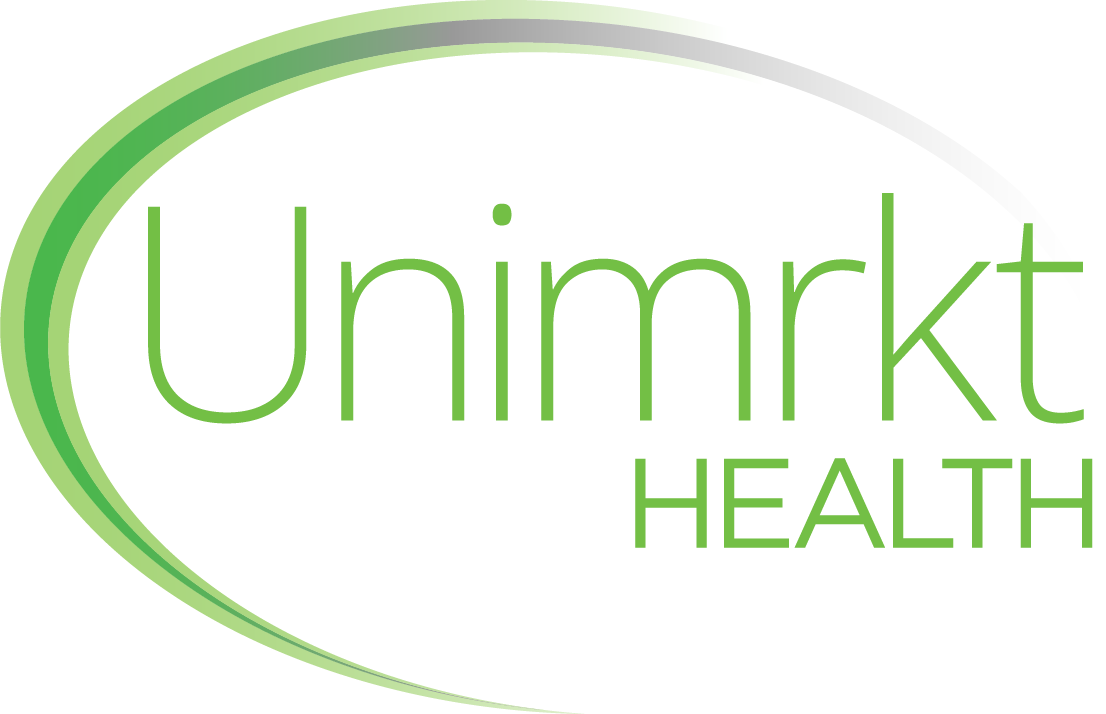Revolutionizing Diagnosis: AI Applications in Healthcare
- Unimrkt Healthcare » Blog » Revolutionizing Diagnosis: AI Applications in Healthcare
Artificial Intelligence (AI) is transforming the world, and the healthcare industry is no different. There won’t be a single, accurate digital healthcare industry report that would claim that medical diagnostics is unaffected by AI. If you aren’t prepared yet, your organization might become outdated, and patients will be hesitant to visit you soon. AI has that impeccable capability to enhance early disease detection, treatment planning, and improve overall patient outcomes. That’s why more healthcare organizations are increasingly integrating AI to improve their digital healthcare research report that would eventually allow them to improve diagnosis and streamline operations. In this blog, we’ll explain how AI-driven tools are revolutionizing the medical field, especially medical diagnostics, what are its key benefits, and the challenges involved. Let’s get started.
4 Unparalleled Benefits of AI in Medical Diagnostics
The increasing adoption of AI-driven solutions is driving market growth at an unprecedented rate. Currently valued at $1.71 billion, the global AI medical diagnostics market is projected to expand at a CAGR of 22.5%, reaching $4.72 billion by 2029. Insights from digital healthcare market research highlight the growing investment in AI technologies, with hospitals, research institutions, and healthcare providers integrating AI-powered tools to enhance efficiency and deliver high-quality care. Here are four key benefits:
Enhanced Early Disease Detection
One of AI’s most significant contributions to medical diagnostics is its ability to detect diseases at an early stage with remarkable accuracy. AI-powered imaging tools, predictive analytics, and machine learning models excel in identifying subtle abnormalities that may go unnoticed by traditional methods. For instance, AI-driven mammography analysis can detect breast cancer in its earliest stages, significantly increasing survival rates by enabling timely intervention. The ability of AI to analyze vast datasets and recognize patterns ensures early diagnosis, leading to more effective treatment and better patient outcomes.
High-Precision Pathology and Disease Pattern Identification
AI-driven pathology solutions have revolutionized disease diagnosis by identifying complex disease patterns with exceptional precision. Machine learning algorithms analyze blood samples, tissue biopsies, and genetic data to detect disease markers and genetic mutations at a microscopic level. This enhances the accuracy of diagnoses in conditions such as cancer, autoimmune diseases, and rare genetic disorders. By automating pathology workflows, AI reduces manual errors and accelerates the diagnostic process, ensuring that patients receive timely and accurate results.
Cost Reduction and Increased Efficiency in Healthcare
AI in medical diagnostics plays a crucial role in reducing healthcare costs by improving efficiency and minimizing errors. Traditional diagnostic processes can be time-consuming and resource-intensive, leading to high operational expenses. AI automates repetitive tasks, speeds up image analysis, and streamlines pathology workflows, allowing healthcare facilities to optimize resource allocation. By reducing misdiagnosis and unnecessary procedures, AI-driven diagnostics contribute to cost savings for both healthcare providers and patients. These efficiencies help make quality healthcare more accessible and affordable.
Data-Driven, Evidence-Based Treatment Recommendations
AI supports healthcare professionals by providing data-driven, evidence-based treatment recommendations. By analyzing a patient’s medical history, genetic profile, and real-time health data, AI-powered decision support systems offer personalized treatment plans tailored to individual needs. This enhances the accuracy of clinical decisions and ensures that patients receive the most effective therapies. AI also enables continuous learning by integrating the latest medical research and clinical guidelines, keeping healthcare providers updated with the best treatment practices.
As AI continues to evolve, its role in diagnostics will only become more profound, paving the way for predictive and preventive healthcare solutions that will shape the future of medicine.
5 Key AI Applications in Healthcare Diagnosis
Now, let’s take a look at the key AI applications in healthcare diagnosis. There are too many of them, but we have handpicked the most relevant one, courtesy of a highly reliable digital healthcare research report.
AI in Medical Imaging and Radiology
AI-powered medical imaging systems are revolutionizing radiology by enhancing the accuracy and efficiency of X-ray, MRI, and CT scan analysis. These intelligent systems assist radiologists by identifying anomalies such as tumors, fractures, and organ abnormalities with exceptional precision. Machine learning algorithms can detect subtle patterns that might be overlooked by human eyes, ensuring early and accurate diagnoses. Insights from our digital healthcare research report indicates that AI-driven imaging significantly improves early cancer detection, leading to higher treatment success rates and better patient outcomes. The continuous evolution of AI in medical imaging is reducing diagnostic errors, expediting results, and enhancing clinical decision-making.
Predictive Analytics and Early Disease Detection
AI-driven predictive analytics is transforming preventive medicine by assessing vast patient datasets to identify potential health risks. By analyzing factors such as genetic predisposition, lifestyle choices, and medical history, AI models can predict the likelihood of chronic conditions like diabetes, cardiovascular diseases, and neurological disorders. These insights enable healthcare providers to implement preventive measures, reduce hospital admissions, and improve long-term patient care. With the support of digital healthcare market research, hospitals and clinics are increasingly adopting AI-based predictive analytics to optimize resource allocation and improve treatment strategies.
AI in Pathology and Laboratory Analysis
AI is streamlining pathology workflows by accelerating the analysis of blood samples, tissue biopsies, and genetic data. Machine learning algorithms identify disease markers, genetic mutations, and infections with remarkable speed and accuracy, far surpassing traditional diagnostic methods. By automating complex pathology processes, AI ensures quicker diagnoses, facilitates early-stage treatment, and enhances personalized medicine approaches. The integration of AI in laboratory analysis is reducing the burden on pathologists, allowing for more efficient disease detection and tailored treatment strategies.
AI-Powered Chatbots for Preliminary Diagnosis
AI-driven chatbots and virtual assistants are transforming patient engagement by providing preliminary diagnoses based on symptom analysis. These intelligent tools collect patient information, assess potential health concerns, and offer guidance on whether further medical consultation is necessary. By streamlining initial patient assessments, AI chatbots help reduce unnecessary hospital visits, improve healthcare accessibility, and ensure that critical cases receive prompt medical attention. As AI technology advances, these chatbots are becoming more sophisticated, offering accurate recommendations and enhancing the overall patient experience.
Automated ECG Analysis and Heart Disease Detection
AI models are redefining cardiac care by automating the assessment of electrocardiogram (ECG) readings. These intelligent systems detect heart irregularities, such as arrhythmias and early signs of cardiovascular disease, with high precision. AI-powered ECG analysis enables early intervention, allowing doctors to implement timely treatments that can prevent life-threatening cardiac events. By leveraging AI for heart disease detection, healthcare providers can significantly improve patient outcomes, reduce mortality rates, and enhance overall cardiac care efficiency.
We Can Help
We’re only at the beginning of using AI for medical diagnostics. As AI technology advances, its role in the healthcare industry will expand further. You need to be prepared to embrace the change and adopt this revolutionary tech. You can pick any digital healthcare research report, and they wouldn’t say anything different. It’s high time you make up your mind. Ready to leverage AI to grow your healthcare organization exponentially (as recommended by countless digital healthcare market research reports)? It’s time to partner with Unimrkt Healthcare. Throughout the years, we have consistently applied scientifically validated methodologies for research in the health industry, ensuring the delivery of actionable data through meticulous targeting of respondents. To learn more about how we can help you with your market research endeavors, call +91-124-424-5210, +91-9870-377-557, or email sales@unimrkthealth.com. You may also fill out our contact form, and our team of experts will assist you as soon as possible.
Recent Posts
- 10 Medical Online Survey Mistakes You Must Leave Behind in 2025
- How Qualitative Healthcare Research Can Accelerate Ethical AI Adoption
- Trust as a Growth Strategy: What Healthcare Leaders Can Learn From Business Market Analysis
- Mapping the Healthcare Value Chain: A Market Research Perspective
- Decoding Emotional Triggers in Treatment Choices: A Qualitative Approach
Archives
Quick Enquiry
Customer Service, We Make it Better
Related Posts:
Let's Connect
Please, fill in the form to get in touch!



